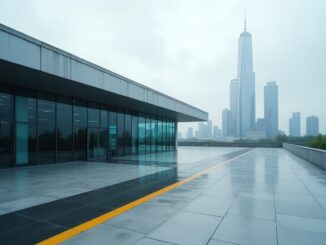Exploring the challenges faced by the Hebrides amid political neglect and ferry woes

Topics covered
Political indifference and the plight of the Hebrides: A call for action
The political landscape in the United Kingdom is often marked by a disconnect between decision-makers and the communities they serve. This is particularly evident in the Hebrides, where local residents face significant challenges due to the indifference of politicians in both Westminster and Scotland.
As the region grapples with harsh winters and inadequate support, the need for urgent action has never been more pressing.
Impact of political decisions on vulnerable communities
In recent years, the government has made decisions that disproportionately affect the most vulnerable populations in the Hebrides.
For instance, cuts to fuel allowances for older residents have raised concerns about their ability to stay warm during the colder months. Such measures reflect a broader trend of prioritizing financial balance over the well-being of citizens. The politicians responsible for these decisions often enjoy comfortable perks and benefits, seemingly oblivious to the struggles faced by those in remote areas.
Moreover, the lack of accountability among politicians has led to a culture of complacency. While opposition parties may vocally criticize the ruling government, they have historically shown little commitment to addressing the root causes of these issues. This cycle of neglect perpetuates a sense of hopelessness among residents, who feel their voices are not being heard.
The ferry crisis: A symptom of deeper issues
The ongoing crisis with CalMac ferries serves as a stark reminder of the challenges faced by island communities. Recently, the aging ferry, the Caledonian Isles, was taken out of service, leaving residents concerned about transportation and access to essential services. The repercussions of such failures extend beyond inconvenience; they threaten the very fabric of island life.
As ferries are commandeered to fill gaps in service, the reliability of transportation becomes increasingly tenuous. The board of Caledonian MacBrayne, often criticized for their lack of engagement with islanders, seems detached from the realities faced by those who rely on these services. Calls for accountability and action have gone largely unheeded, leaving residents frustrated and disillusioned.
A call for change: Engaging with island communities
To address these pressing issues, it is crucial for politicians to engage directly with island communities. This means not only visiting the Hebrides but also listening to the concerns of residents and taking their needs seriously. The appointment of local representatives to boards like CalMac could foster a more responsive approach to governance, ensuring that decisions reflect the realities of life in the islands.
Furthermore, a shift in political priorities is necessary. Instead of viewing the Hebrides as a peripheral concern, policymakers must recognize the unique challenges faced by these communities and work collaboratively to find solutions. This includes investing in infrastructure, improving ferry services, and providing adequate support for vulnerable populations.
As the political landscape continues to evolve, the voices of the Hebrides must not be overlooked. By advocating for change and holding politicians accountable, residents can work towards a future where their needs are prioritized and their concerns addressed.





Leave a Reply